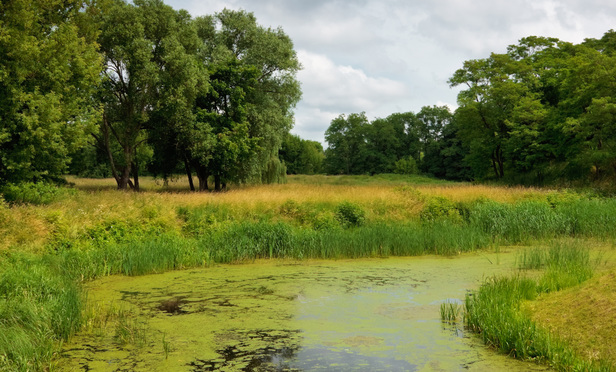Diana A Silva

November 13, 2017 | The Legal Intelligencer
Settlements and CERCLA Contribution Claims–A Lesson in Careful DraftingThe federal Comprehensive Environmental Response, Compensation, and Liability Act (CERCLA), better known as Superfund, provides private parties with two types of claims to recover costs associated with investigating and remediating contaminated sites—a cost recovery claim under CERCLA Section 107(a), 42 U.S.C. Section 9607(a), and a contribution claim under Section 113(f), 42 U.S.C. Section 9613(f). A party can have either a CERCLA Section 107 cost recovery claim, or a Section 113 contribution claim, but not both, as each section of CERCLA provides mutually exclusive remedies.
By Diana A. Silva
9 minute read

July 25, 2016 | The Legal Intelligencer
Settlement Negotiations and Public Disclosure LawsWhen negotiating a private settlement agreement, practitioners typically consider such negotiations to be confidential and privileged, not to be disclosed by the parties outside of the confines of the settlement discussions. In fact, most private mediation and settlement agreements contain specific confidentiality provisions, with each party expressly agreeing that the terms of the settlement are to be kept strictly confidential and not disclosed to any third party unless required by law. But, when settlement negotiations take place with a governmental agency, maintaining confidentiality both during and after settlement can be more problematic, as the content of the negotiations and documents exchanged may be subject to disclosure under the federal Freedom of Information Act (FOIA) and state "sunshine" laws, including Pennsylvania's Right-to-Know Law and New Jersey's Open Public Records Act (OPRA).
By Diana A. Silva
22 minute read

May 08, 2015 | The Legal Intelligencer
To Grant or Not to Grant Environmental Site Access RequestsOftentimes the investigation or remediation of environmental contamination at a site triggers the need for access to an off-site property, either to determine whether the off-site property has been impacted by the contaminated site, or to conduct remedial activities to address contamination that has migrated to the site. In recent years, the need for this off-site access has become more frequent because of increased regulatory focus on vapor intrusion—the potential of certain contaminants in soil or groundwater to volatilize, travel through the subsurface, migrate through building floors and foundations, and potentially negatively affect indoor air quality.
By Jonathan H. Spergel and Diana A. Silva
9 minute read

May 07, 2015 | The Legal Intelligencer
To Grant or Not to Grant Environmental Site Access RequestsOftentimes the investigation or remediation of environmental contamination at a site triggers the need for access to an off-site property, either to determine whether the off-site property has been impacted by the contaminated site, or to conduct remedial activities to address contamination that has migrated to the site. In recent years, the need for this off-site access has become more frequent because of increased regulatory focus on vapor intrusion—the potential of certain contaminants in soil or groundwater to volatilize, travel through the subsurface, migrate through building floors and foundations, and potentially negatively affect indoor air quality.
By Jonathan H. Spergel and Diana A. Silva
9 minute read

January 10, 2014 | The Legal Intelligencer
Environmental Law Forecast: What Issues to Expect in 2014As we ring in the New Year, here is a preview of the top environmental issues that are expected to take center stage in 2014:
By Diana A. Silva
7 minute read

March 08, 2013 | The Legal Intelligencer
Bona Fide Prospective Tenant Endorsed as New CERCLA-Protected ClassThe U.S. Environmental Protection Agency recently issued new guidance that will help tenants leasing contaminated property to minimize their risk of environmental liability under the Comprehensive Environmental Response, Compensation, and Liability Act, commonly known as CERCLA.
By Diana A. Silva
6 minute read

February 24, 2012 | The Legal Intelligencer
Uncertainty Looms Over EPA's Cross-State Air Pollution RuleIn recent years, the Environmental Protection Agency has promulgated a number of regulations affecting the energy sector. Last year was no exception, with the EPA issuing several new rules aimed at curbing air emissions from electric generating units (EGUs).
By Katherine L. Vaccaro and Diana A. Silva
11 minute read
February 28, 2012 | Texas Lawyer
Uncertainty Looms Over EPA's Cross-State Air Pollution RuleIn recent years, the Environmental Protection Agency has promulgated a number of regulations affecting the energy sector. Last year was no exception.
By Katherine L. Vaccaro and Diana A. Silva
11 minute read
Trending Stories
- 1Supreme Court Takes Up TikTok's Challenge to Upcoming Ban or Sale
- 2State High Court Bucks Trend Favoring Insurers, Sides With Restaurants Seeking COVID-19 Coverage
- 3Remote Proceedings: A Gift for the Holidays
- 4Contested Engineer Cleared to Testify in Defective Pistol Suit, Federal Judge Rules
- 5How I Made Partner: 'Don’t Be Scared to Be Ambitious,' Says Aya Eguchi of Morrison Foerster
More from ALM
- Scan In Progress: Litigators Leverage AI to Screen Prospective Jurors 1 minute read
- Legal Speak at General Counsel Conference East 2024: Match Group's Katie Dugan & Herrick's Carol Goodman 1 minute read
- Legal Speak at General Counsel Conference East 2024: Eric Wall, Executive VP, Syllo 1 minute read



